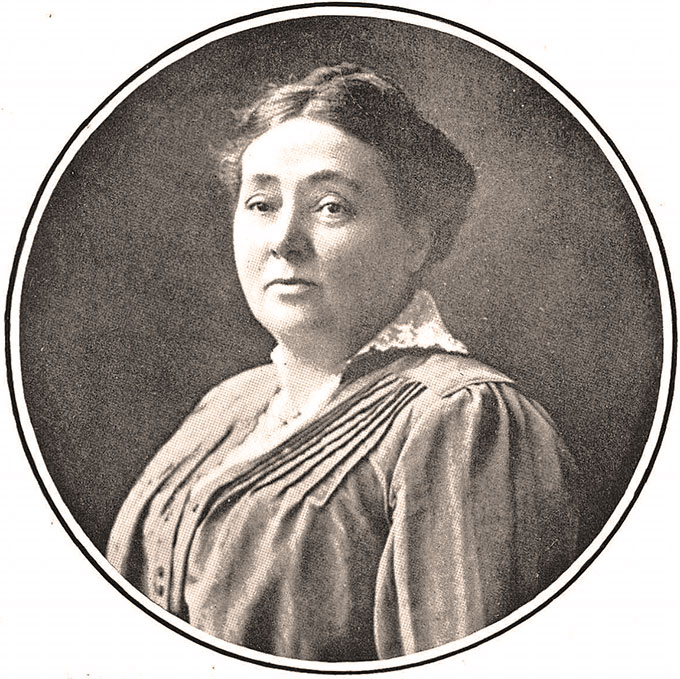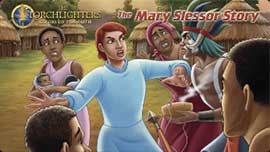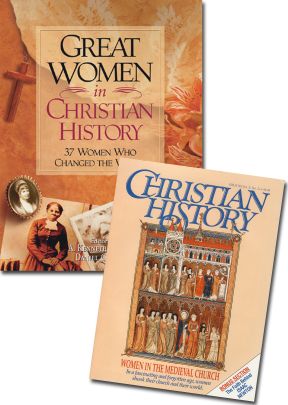EDITH WARNER WAS THE FIRST WHITE WOMAN MANY AFRICANS SAW

[Above: Edith Warner, frontpiece of G. T. Basden, Edith Warner of the Niger. Seely Service and Co, 1927. Public domain.]
WHEN EDITH WARNER was no more than fourteen, she came away from a missionary meeting determined to dedicate her life to taking the gospel to people who had never heard it. In the succeeding eleven years, the London-born Warner completed her education at prominent English schools and joined a missionary band, whose members pledged themselves to go as missionaries if the way should open. The way did open for some. In 1892, the Church Missionary Gleaner noted that “The Committee of Correspondence on June 21st accepted the following ladies as missionaries of the Society.” Among the names was “Miss Edith Ashley Warner.”
During forty-eight days at sea, in company with Bishop Designate Joseph Sidney Hill and other missionaries, Warner experienced the rough side of life on a steamer trading along the African coast. Bad food, coarse language, sales of gunpowder, heat, unavoidable delays, and a rolling ship were eye-opening and stomach-emptying, but she took them in stride. On this day, 28 October 1892, the team arrived at Lagos, Nigeria. The passengers had to be lowered by hoist to a surf boat, paddled to the side of a local steamer, and hauled up by another hoist to its deck. Lagos harbor was silt-filled, not dredged as at present.
Two months after her arrival in Lagos, Warner steamed up the Niger River to Onitsha, her base for the next thirty years. She would teach at the first girls’ school opened among the Ibo. Instruction included subjects such as catechism, music, tailoring, nursing, baking, and infant care. Warner developed a boarding school. Twentieth-century novelist Chinua Achebe said his mother attended there and was terrified the first time she saw Warner’s false teeth in a bowl. Warner also whacked her for giggling when she [Warner] mispronounced an Ibo phrase, explaining that proper etiquette would be to set her right, not to laugh. With practice, Warner became a proficient speaker of the language.
One of Warner’s endeavors was to establish an orphanage to save the lives of twins and other children who would otherwise be abandoned as unclean. Many died but others survived and not a few became Christians.
Although the work was fulfilling, Warner continually thought of the many souls in surrounding areas who had never heard that Jesus died for their redemption. She made treks to distant villages. Africans turned out to see her, the first white woman who had appeared in their villages. Some, fearing the end of tribal religious practices, met her with hostility. One of her trips covered over two thousand miles into inhospitable regions.
On occasion she played her violin to attract listeners. Her practice was to teach gospel songs and choruses that would perpetuate the Christian message long after she was gone.
No statistics could measure the good she did by such evangelism, nor her influence through her students. Some belonged to rival tribes and being brought together helped heal their differences. To her students she was Nne-ayi (our mother). Many of them became the wives of Christian teachers and pastors and taught others in their turn. Achebe’s mother, for instance, became the wife of an evangelist.
Edith Warner worked in Africa for over thirty years with short furloughs. Late in 1924 she returned to England for surgery. During her convalescence, an African wrote her,
There will be no other Nne-ayi for us but you, Omenwa [“Pet child,” her nickname], we are still remembering all our singing, and at our last conference we sang a chorus that you taught us.
After seeming to recover in 1925, she developed pleurisy. Her earlier problems returned and she died near the end of the year. A friend wrote in retrospect,
Year in, year out, in a climate that has earned for that region the name of “the white man’s grave” she made light of discomforts and sacrifices, while she toiled at her task of building up a pure Christian girlhood and womanhood in the growing African Churches.
—Dan Graves
----- ----- -----

Edith Warner was preceded in Nigeria by the world-famous missionary Mary Slessor, whose story has been told in Torchlighters: The Mary Slessor Story. Watch all the Torchlighters at RedeemTV.
(You can purchase The Mary Slessor Story at Vision Video.)
For more stories of notable women, read Great Women in Christian History







